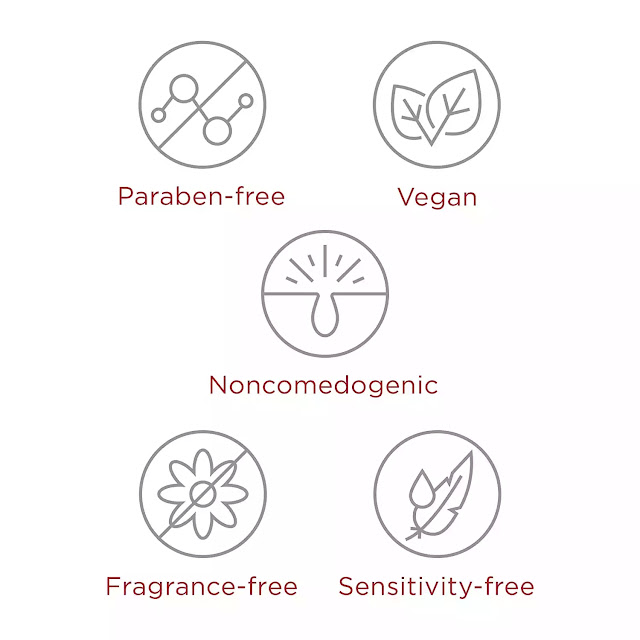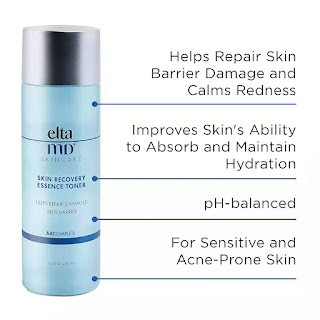EltaMD UV Daily Tinted Sunscreen with Zinc Oxide, SPF 40 Face Sunscreen Moisturizer, Helps Hydrate Skin and Decrease Wrinkles, Lightweight Face Sunscreen, Absorbs Into Skin Quickly, 1.7 oz Pump
Scent Unscented
Product Benefits Moisturizing, tinted facial sunscreen protects against the harmful UVA and UVB rays from the sun
Sun Protection 40 SPF
Item Weight 48 Grams
Number of Items 1
DESCRIPTION: EltaMD UV Daily tinted facial sunscreen offers potent sun protection and moisturization. It contains hyaluronic acid to boost moisture retention. This lightweight moisturizer can be worn alone or under makeup. This product is non-sealed
BENEFITS: Moisturizing, tinted facial sunscreen protects against the harmful UVA and UVB rays from the sun
SUGGESTED USE: Apply per Direction to help prevent sunburn and decrease the risk of skin cancer and early skin aging caused by the sun.
Customer reviews
4.6 out of 5 stars, 17,752 global ratings
5 star 80%
4 star 11%
3 star 4%
2 star 2%
1 star 3%
How customer reviews and ratings By feature
Sun protection 4.6
Easy to spread 4.6
For sensitive skin 4.6
Moisturizing 4.5
Comfort 4.5
Style 4.2
SOME USEFUL INFORMATION ABOUT SUNSCREEN
Sunscreen, also known as sunblock or sun cream, is a type of topical product that helps protect the skin from the harmful effects of ultraviolet (UV) radiation from the sun. Sunscreens work by absorbing, reflecting, or scattering the UV rays before they can penetrate the skin. The active ingredients in sunscreen can be organic or inorganic compounds that help block UVA and/or UVB rays.
UV radiation from the sun can cause skin damage, premature aging, and an increased risk of skin cancer. Sunscreen can help reduce the risk of these harmful effects by providing a barrier between the skin and the sun's rays. Sunscreen is available in various forms, including lotions, sprays, gels, and sticks, and is often categorized by its sun protection factor (SPF). The higher the SPF, the greater the level of protection against UVB rays. It is important to use sunscreen daily and reapply it every two hours or after swimming or sweating to ensure optimal protection.
Q. When was sunscreen invented?
A. Sunscreen, as we know it today, was first invented in the early 20th century. In 1938, Austrian chemist Franz Greiter created the first effective sunscreen, which he called Gletscher Crème or Glacier Cream. However, the use of sun protection dates back much further. Ancient civilizations, such as the Egyptians, Greeks, and Romans, used various substances like plant extracts, clay, and mud to protect their skin from the sun. In the 19th century, zinc oxide was discovered to have sun-blocking properties and was used as a key ingredient in early sunscreens.
Q. How much sunscreen should I apply?
A. The American Academy of Dermatology recommends applying at least one ounce (enough to fill a shot glass) of sunscreen to cover all exposed areas of the body. Be sure to apply it generously and evenly, and reapply every two hours or after swimming, sweating, or toweling off.
Q. Should I use sunscreen every day, even when it's cloudy?
A. Yes, you should use sunscreen every day, even when it's cloudy. UV rays can penetrate clouds and cause skin damage, so it's important to protect your skin every time you go outside.
Q. Can I use sunscreen on my face if I have acne-prone skin?
A. Yes, you can use sunscreen on your face if you have acne-prone skin. Look for sunscreens that are labeled "non-comedogenic" or "oil-free" to avoid clogging pores. Some sunscreens also contain ingredients like zinc oxide or titanium dioxide that can actually help soothe and prevent acne.
Q. Is it safe to use sunscreen on babies and young children?
A. Yes, it is safe to use sunscreen on babies and young children, but you should choose a sunscreen that is specifically formulated for their sensitive skin. Look for sunscreens that are labeled "broad-spectrum" and have an SPF of at least 30. You should also keep babies under 6 months out of direct sunlight and dress them in lightweight clothing that covers their skin.
Q. Can I use sunscreen that has passed its expiration date?
A. It is generally not recommended to use expired sunscreen as it may not provide the intended level of protection. Sunscreens contain active ingredients that can degrade over time, especially when exposed to heat and light, which can decrease their effectiveness in blocking UV rays. The FDA requires all sunscreens to have an expiration date, and it is important to follow those guidelines for maximum protection. Using expired sunscreen can increase the risk of sunburn, skin damage, and skin cancer. It's best to replace your sunscreen every year and check the expiration date before using it.
Complete the regimen
Discover product recommendations selected by Buyers














